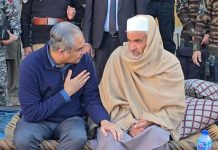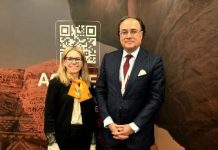KARACHI: The Federation of Pakistan Chambers of Commerce and Industry’s Businessmen Panel (BMP) has warned of imposing additional taxes, as the government is finalizing the mini-budget of Rs360 billion, planning to impose more taxes on about 140 industrial raw material and essential items, beside raising tax ratio on phone calls, leading to further hike in inflation which is already in double-digit.
The Businessmen Panel (BMP) chairman and FPCCI ex-president Mian Anjum Nisar said that the regular attempt of economic managers to impose new taxes and increasing oil prices along with the hike in power and gas tariffs will ultimately harm the government’s overall move of reducing the production cost for the businesses.
He said the government has decided to slap 17% GST on at least 140 types of consumable goods and industrial machinery to raise Rs353 billion worth of taxes.
Mian Anjum Nisar said that industry is the main victim of this IMF interference, as donors’ involvement in Pakistan’s economic matters and dictations to the policy makers for taking harsh measures would add to the economic miseries of the country.
The BMP Presidential candidate in FPCCI elections Irfan Iqbal Sheikh said that after new taxes in the mini-budget the prices of goods, including milk, cereals, bakery items, meat, chicken, gold, bicycles, cars including electric cars, mobile phones will rise, unleashing another wave of inflation in the country. He said that inflation has jumped to 11.5% last month and the State Bank of Pakistan has also upward adjusted its inflation projection to the range of 11% for the current fiscal year, as the government is also in process of withdrawing electricity subsidies.
Irfan Iqbal Sheikh, who is former LCCI president, said that the inflation rate is the highest in the country among all the South Asian nations, according to a World Bank report.
He said that a major chunk of the revenue will be generated in mini-budget by slapping 17% tax at the import stage on nearly 80 items which are raw materials for the manufacturing of medicines, cereals, live animals, birds and eggs, meat, fish, fresh vegetables, fish feed and animal feed. The imported plant and machinery will also be subject to 17% sales tax rates including those purchased for setting up power generation and transmission projects. Similarly, the machinery for renewable energy including solar, wind and nuclear power generation will also attract 17% sales tax. The world is moving towards alternate source of electricity generation but the government’s policies are contrary to the global direction.
Irfan Iqbal Sheikh said that Pakistan is the most frequent customer of IMF and governments often depended on borrowing from IMF and accepted stringent conditions despite the fact that this institution is merciless money lender which always forced Pakistan to adopt bad policies like new taxes in the budget, rupee devaluation and massive increases in the electricity and gas prices. It is very unfortunate that the government has given go-ahead to the economic team to fulfill all the required prerequisites for revival of the stalled program under $6 billion Extended Fund Facility, setting aside the miseries of the trade and industry. He said that the new taxes, in a bid to fulfill the IMF condition, will destroy the local as well as export industry that is already facing high cost of production.
Mian Anjum Nisar said that the government and the IMF have reached an agreement to revive the stalled $6 billion program, assigning the task to government to generate additional Rs360 billion from the trade and industry through new taxes in the minibudget.
The BMP Chairman said that the IMF has also asked the government to reduce the number of income tax slabs for the business class, which will increase the tax burden of the people falling in higher income brackets, resulting into jump in cost of production and high inflation.
He resented that the frequent increase in electricity tariff and petroleum products’ prices along with burden of new taxes on the behest of the International Monetary Fund is dangerous game for the economy of the country, as it would make the Pakistani products uncompetitive in the international market.
Mian Anjum Nisar said that the government continued to raise gas and power tariffs, besides lifting rates of petroleum products twice a month to qualify for the revival of the stalled $6 billion IMF loan program, leading the economy towards point of no return due to interference of the International Monetary Fund.

















